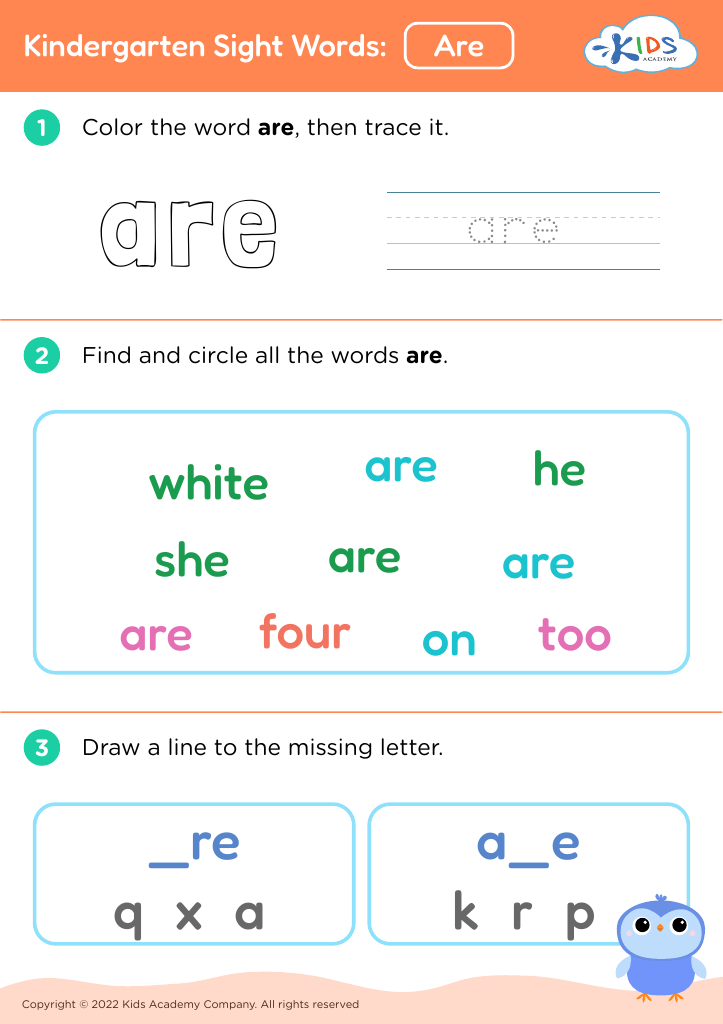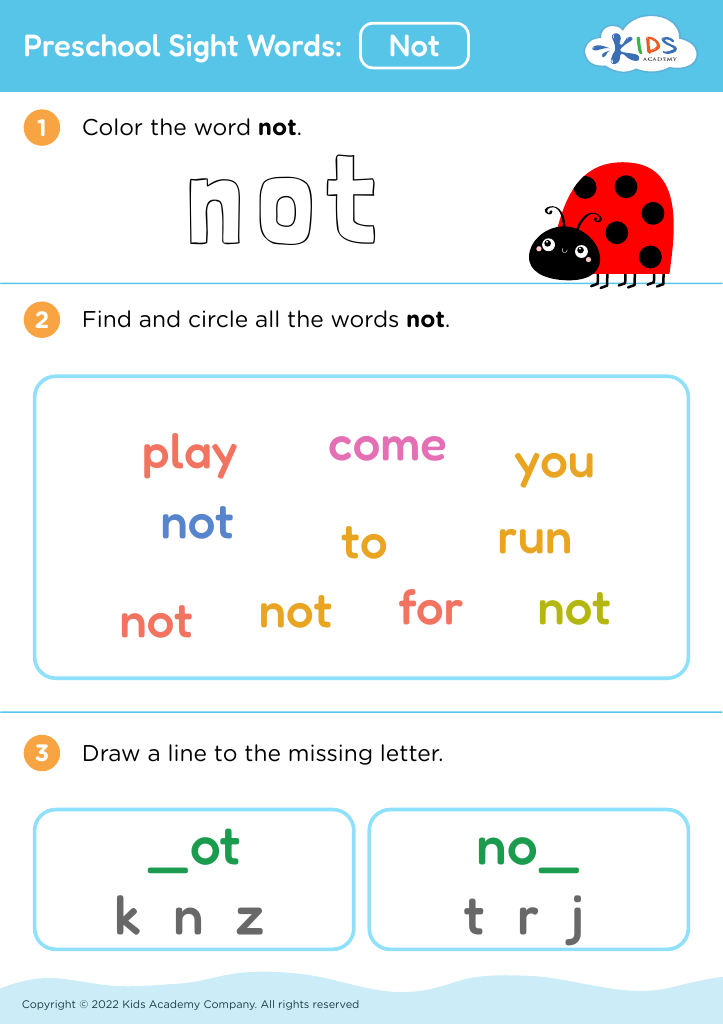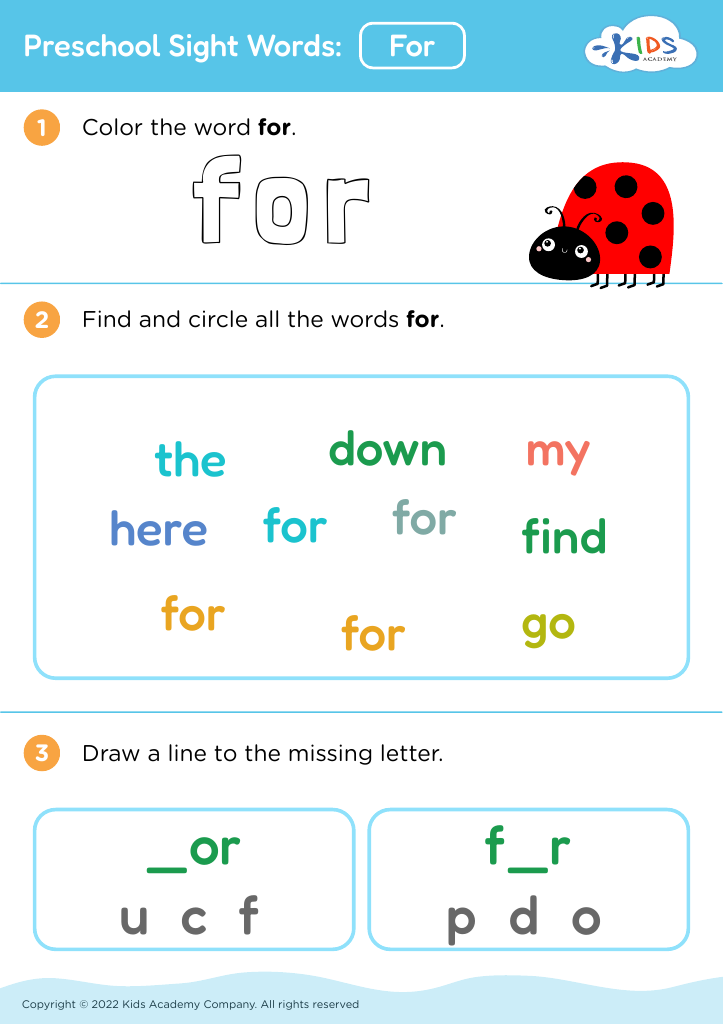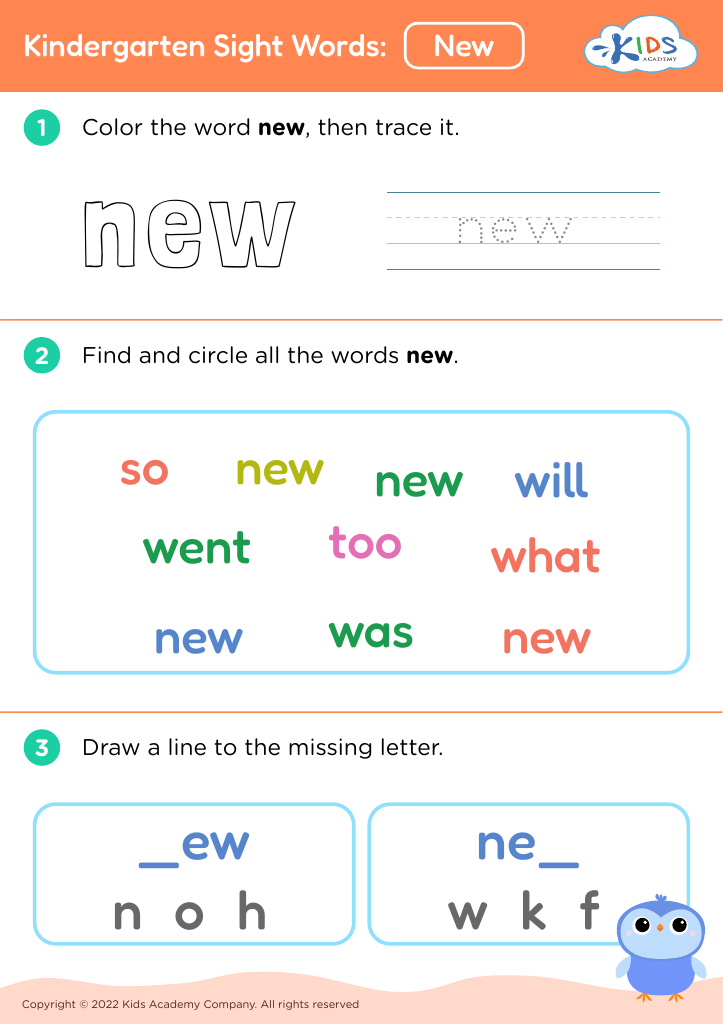Basic Addition Skills Building Vocabulary Worksheets for 5-Year-Olds
4 filtered results
-
From - To
Boost your 5-year-old's math abilities with our engaging Basic Addition Skills Building Vocabulary Worksheets! Designed for young learners, these worksheets focus on introducing foundational addition concepts through fun and interactive activities. Children will practice adding numbers with colorful visuals and relatable scenarios that enhance understanding and retention. Each worksheet encourages creativity while reinforcing essential vocabulary associated with math and addition. Teachers and parents can easily download these resources to support essential skill development at home or in the classroom. Encourage your child's love for learning with these simple yet effective worksheets that make mastering addition both enjoyable and educational!
Parents and teachers should care about basic addition skills and vocabulary development for 5-year-olds because these foundational skills set the stage for future academic success. At this age, children are primed for learning through play and exploration, and mastering basic addition introduces them to critical mathematical concepts that will support their learning in later grades.
Building a strong vocabulary around numbers and addition is crucial. It helps children articulate their thought processes, understand math language, and communicate their ideas effectively. For example, using terms like "sum," "plus," and "equal" not only reinforces mathematical understanding but also enhances their overall language skills.
Moreover, fostering addition skills enhances cognitive development, embedding logical thinking and problem-solving abilities. Activities that involve counting objects or using visual aids like blocks help make abstract concepts more tangible.
Engaging parents in this process encourages a home environment conducive to learning, while teachers can design activities that connect math to daily life, making it more relatable. Ultimately, developing basic addition skills and vocabulary not only prepares children for a positive attitude towards math but also strengthens their confidence and curiosity as learners. Investing time in these areas now lays the groundwork for a lifetime of learning.



















.jpg)













